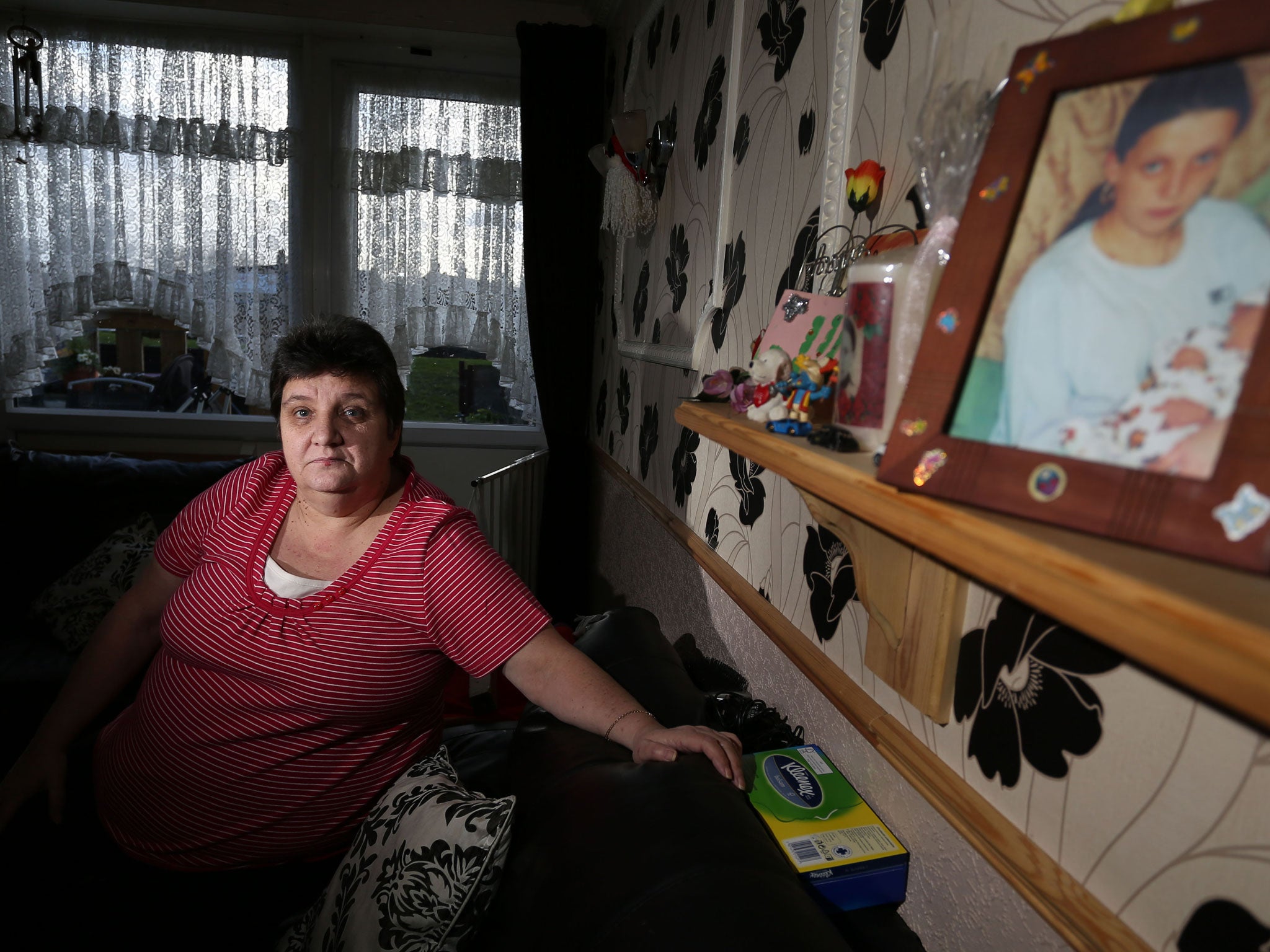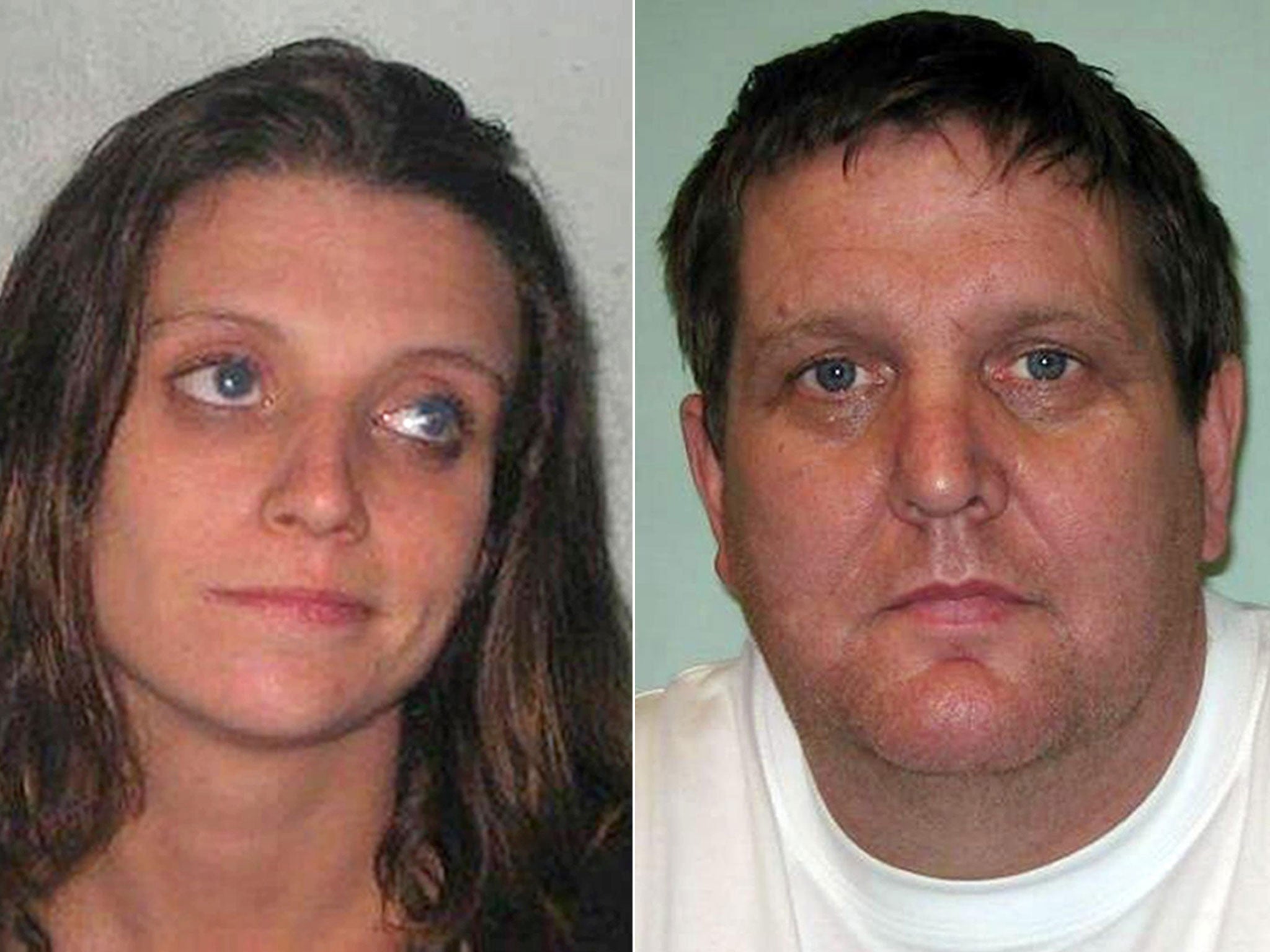Jack the Ripper copycat murders spark call for sex worker protection
Victim’s mother tells Emily Dugan that adopting a Liverpool policing model nationwide could prevent more killings

The nearest thing Jackie Summerford has to a grave for her murdered daughter is a small pine bookshelf in her front room. It is covered in poems, candles and trinkets – her way of remembering her youngest child, Bonnie Barrett, who was murdered by a serial killer who police believe was imitating Jack the Ripper.
“They reckon he chopped up the bodies and disposed of them”, Jackie, 54, says of her daughter’s killer, Derek Brown. “I want to have somewhere to go and lay her to rest. At the moment all I’ve got is this shelf.”
Bonnie, 24, had already been missing for several weeks before her mother knew for sure that she had been killed. It was late 2007 and the police knocked on her door in Walworth, south London.
“When they introduced themselves as homicide, I knew what that meant,” Jackie recalls. They had found Bonnie’s DNA in traces of blood in Brown’s flat, along with that of a Chinese DVD seller, Xiao Mei Guo.
Bonnie worked as a prostitute. She was addicted to crack and had been making money for several years as a sex worker in Whitechapel – the area of east London where Jack the Ripper preyed on his prostitute victims in 1888.
Bonnie’s life had been out of control for a while and Jackie was already bringing up her son, Roger, who is now 12 and still lives with her.
Jackie believes better policing could have prevented her daughter’s death. She is one of several women who are today launching a campaign on the Change.org petition website to change the way police interact with those in the sex trade.
She says: “Too many working girls are raped and beaten. It becomes the norm for them and they give up on reporting it and put up with it. They deserve to be protected, not ignored by police.
“Alright, they’re trashed for what they’re doing but they’re still human beings. Every woman is somebody’s daughter.”
Sex workers are at least 12 times more likely to be murdered than the national average, according to a report from the Greater London Authority. Bad relations with the police are often a barrier to reporting concerns about violent customers.
About four months before Bonnie was murdered, another prostitute visited Brown in his flat. According to Jackie, this sex worker thought he was acting “very oddly” and left as fast as she could. But she did not warn the police of her fears about him.
Over her lifetime, Bonnie was arrested for soliciting more than 30 times, a fact her mother believes eroded trust that the police would be on her side. Two years before Bonnie was murdered, she was violently attacked.
Jackie says: “She was in a derelict building in Whitechapel and this man beat her really badly and left her for dead. The police tried for six weeks to talk to her but she wouldn’t speak to them.”

A spokeswoman for the Metropolitan Police said: “We take allegations of assault against sex workers very seriously. Victim care is at the heart of our investigations.”
Brown was jailed for life for Bonnie and Xiao’s murder in 2008. During his trial the prosecution told the Old Bailey that the women were targeted because they “both lived on the edge of society and were soft targets for the killer, who thought that neither woman would be missed”.
It is this invisibility that makes sex workers particularly vulnerable to violent crime. But campaigners believe a novel policing method adopted in Liverpool might be a solution. In 2006, following a series of murders of prostitutes, Merseyside police decided to change the way they interacted with sex workers.
They appointed intermediaries not directly employed by the police to help sex workers report violent customers; they avoided making unnecessary arrests for soliciting; and they ordered officers to deal with any violent crime against a sex worker as a hate crime.
The change was so successful that convictions soared. The national average conviction rate for rape is 6.5 per cent. But In 2010, a 67 per cent conviction rate was achieved for those who raped sex workers in Merseyside. In Liverpool in 2009 it was even higher, reaching 90 per cent.
Their methods became known as the Merseyside Model and the Association of Chief Police Officers now recommends that forces across the country adopt it as best practice. The petition by Jackie and others on Change.org demands that Home Secretary Theresa May adopts the model nationwide.
Last night, Crime Prevention minister Norman Baker told The Independent: “We want to end all forms of violence against women and girls. This includes protecting those involved in prostitution, who can be particularly vulnerable.
“Local agencies are best placed to find solutions to local problems but where schemes are effective in protecting individuals and communities, we want to share information and best practice.”
Recalling policing in Merseyside before the change, Detective Chief Superintendent Tim Keelan said: “In ’94 we were very much about the enforcement, arrest and prosecution of sex workers for soliciting. When we were investigating murders at that time, the women were very reluctant to assist us, even though it was often one of their friends who had been killed.”
He says chasing arrests for minor crimes such as soliciting ended up being counter-productive. “It’s really important to have a good working relationship, because if you haven’t and you go down the line of enforcement, you’re not going to stop prostitution. You’ll displace it and make the people engaged in street sex work at more risk.”
Ruth Jacobs, a former sex worker involved in the campaign to introduce the Merseyside Model, said: “People who sell sex are easy targets. People working in prostitution are very unlikely to report a crime and police can have the attitude that it’s part of your job and it’s what you’re asking for.
“I was raped at my flat in London when I was working as a prostitute. The police didn’t help me. Another time I was beaten and there was no point going to the police,” she said.
“Who was going to believe me, a hooker, over someone like him – a rich man with a huge waterfront apartment? I want Theresa May to do something. Different policing could change the situation.”
Another way: The Merseyside model
Police in Merseyside have prioritised protecting sex workers who are victims of crime over enforcing soliciting laws since 2006. Any violent crimes against sex workers are dealt with in the same way as hate crime, to acknowledge that women doing this work were more vulnerable because of what they do.
Intermediaries not directly employed by the police are also in place to help sex workers report violent customers. Arrests for soliciting and other minor offences related to their work are avoided, to help build trust.
Rosie Campbell, an advocate for sex workers and one of the people who helped draw up the model, said: “Historically there’s been a very poor relationship between police and sex workers, which creates vulnerabilities. It feeds into the minds of some offenders who target sex workers because they think they will get less protection. Then it becomes a self-fulfilling prophecy.”
Emily Dugan
